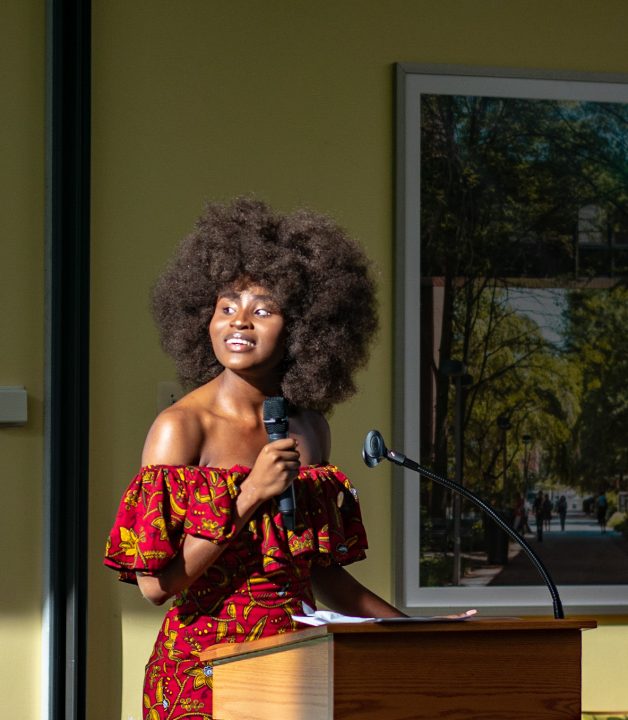Africa has a rich history and culture often mishandled or unknown outside the continent. Inspired by a past Mosaic Center event, newly elected African Student Association president Jessica Linus desired to call attention to the cultural diversity unique to Africa.
On Wednesday, she ushered in herself and others to speak and perform for the chapter of the Mosaic Center’s Lost in Translation series, The Impact of Colonialism on African History. For the event, a presentation was comprised of multiple sections discussing misconceptions, cultural appropriation, its regional and collective history, and public health.
Linus addressed many misconceptions that afflict others’ understanding of Africa. She showed through tweets those who believe that African people smell or that Africa is a country. The worst misconception of all is that African people have “no history.”
Linus negates this statement by saying African people were “ripped out of history” due to colonialism and slavery. Linus said her father told her, “that a man without a culture is without an identity.” In addition to being dressed in Nigerian traditional wear, Linus showed the audience photos of her grandfather, a chief of the hometown adorned in a red cap for his service and dedication to the community.
In her presentation, President and Founder of the Igbo Amaka Cultural Institute, Ngozi Ogbonna, told the audience that the best way to honor their home culture is to learn and speak their traditional language. Ogbonna modified the adage that “education is power” by stating that one cannot learn without language.
She asked how many of the audience could proficiently speak their native language, and few hands were raised. Ogbonna herself is fluent in Igbo, her native language, and teaches it herself at the Community College of Baltimore County in Essex. She founded her organization with the mission of spreading Igbo education to other universities, including UMBC, her alma mater.
The audience learned that more African language classes have not been implemented at UMBC because the turnout is low, despite the great dispensary of African students on campus. Ogbonna reminded the viewers that, “English is not the first language of Africa.”
Learning your native language opens the doors to understanding the message of your culture. In between talks, the message of the event lived through dance and spoken word. An invigorating dance to African music was masterfully and playfully implemented by the Afro Connectors Dance Troupe. The spoken word by another speaker coincided with the message of Africa as the motherland of its people far and wide.
Lastly, Marion Sillah discussed cultural appropriation of African culture. Here, the audience learned that black people can appropriate their own culture by being ignorant of meanings of the culture they are following. In being cognizant and respectful of one’s culture, one can hold to the mission of keeping one’s culture and identity alive.The event ended with the audience chanting, “We can change our communities. We can change our community. We can change Africa.”


